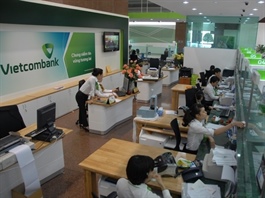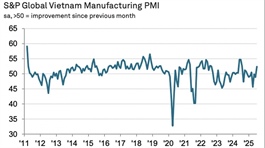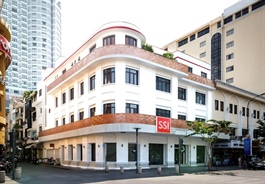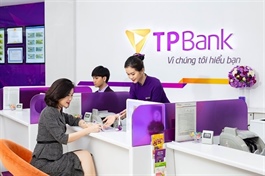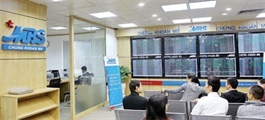FDI firms still locked out of Việt Nam’s stock scene
FDI firms still locked out of Việt Nam’s stock scene
Currently, only ten FDI enterprises are listed across the country’s three exchanges, a number that has barely changed in more than a decade.
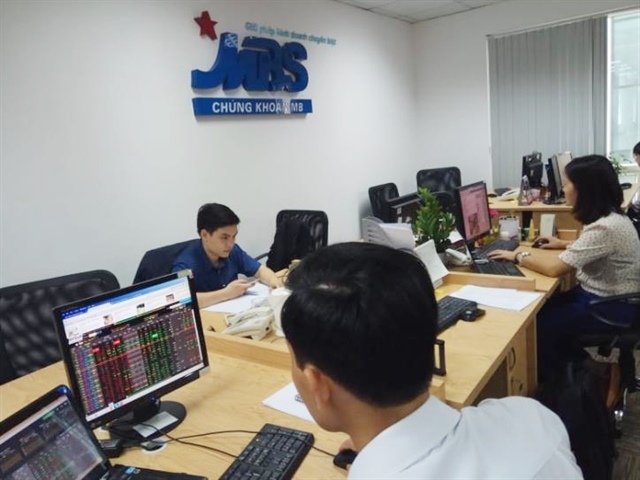
Traders work at an office of MB Securities. — VNA/VNS Photo |
Despite rising anticipation, Việt Nam’s stock market has yet to experience the expected wave of foreign-invested enterprises (FIEs) going public, as lingering regulatory hurdles continue to hold back progress.
At present, just ten FDI firms are listed across the country’s three stock exchanges — a figure that has remained virtually unchanged for over a decade. Of these, six are listed on the Hồ Chí Minh City Stock Exchange (HoSE), one on the Hà Nội Stock Exchange (HNX) and three are on the unlisted public company market UPCoM.
The most notable push came between 2003 and 2008, following the introduction of Decree 38/2003, which created a legal path for foreign companies to convert into joint-stock companies.
However, since the listing of Siam Brothers Vietnam in 2017, no new FDI enterprises have joined the market.
Market experts cite the absence of a clear legal framework as the primary obstacle.
“The biggest obstacle is the lack of a clear legal corridor for FDI enterprises to go public in Việt Nam,” said Võ Bích Vân, financial advisor at FIDT Investment Consulting.
According to Vân, although the Investment Law 2020 and Securities Law 2019 have modernised aspects of the capital market, neither provides concrete guidance for foreign-invested companies to list.
Many FDI firms are keen to raise capital and build brand visibility in Việt Nam, but, as she put it, “they cannot find the legal ‘door’ to enter the market”.
This frustration is shared by the businesses themselves. A representative from CP Vietnam told Tuổi Trẻ (Youth) the company was ready to proceed with a listing, pending formal guidance from the authorities.
“The group is also ready. If there are regulations and a process, we will be ready to implement,” the spokesperson affirmed.
The limited presence of FDI enterprises on Việt Nam’s stock exchanges is widely viewed as a missed opportunity for the country’s financial ecosystem.
Industry insiders argue that many of these firms possess significant financial strength, international management expertise and reputable global brands — all of which could deepen the market and enhance its diversity.
Their participation would also help reinforce market indices, attract long-term institutional investment, and bolster Việt Nam’s case for an upgrade to emerging market status by major global index providers.
Chief Global Markets Officer at SSI Securities Thomas Nguyễn underscored the importance of FDI firm listings for the development of Việt Nam’s capital markets.
Foreign-invested firms, he noted, could bring both scale and credibility. But to make listings viable, he said, two key conditions must be met: domestic market valuations must be competitive with those in regional financial centres and the listing process must be more streamlined and flexible than in heavily regulated and costly jurisdictions such as the United States.
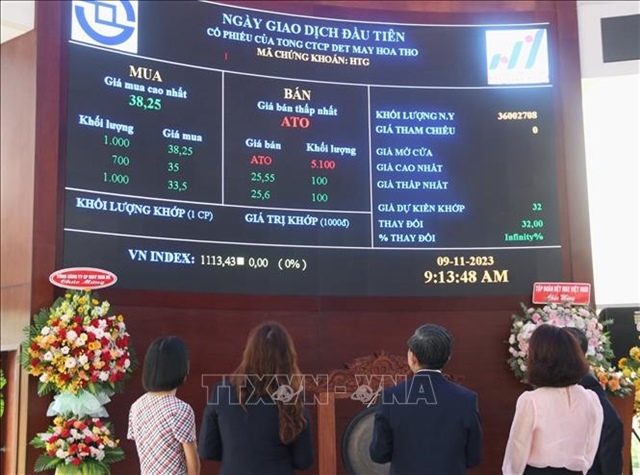
Traders work at an office of MB Securities. — VNA/VNS Photo |
Risks control
Still, the regulatory authorities remain cautious.
Chairman of the Vietnam Securities Depository and Clearing Corporation (VSDC) Nguyễn Sơn highlighted that while attracting FDI listings is a priority, risks cannot be ignored.
Concerns include the possibility of post-listing capital flight, transfer pricing manipulation, or weaknesses in financial disclosure.
“It is vital to ensure that only quality enterprises list, with safeguards to protect investors and the broader market,” Sơn said.
Experts believe a middle ground can be achieved by introducing a tailored legal framework. This could include criteria such as a minimum operating track record of two to three years, requirements for sustained revenue growth and commitments to technology transfer.
To prevent opportunistic behaviour, lock-up periods could be imposed, requiring founding foreign shareholders to hold their shares for three to five years after listing.
Pilot programmes, or so-called 'listing sandboxes,' could be introduced to test the model with a small number of firms before scaling it up, Vân said.
Complementary policies such as IPO support centres, shortened IFRS transition requirements, or temporary tax incentives could also encourage participation.
The need for reform is pressing. Việt Nam is seeking to deepen its financial markets to match the scale of its fast-growing economy, which continues to attract strong inflows of foreign direct investment.
Yet without a mechanism to bring FDI enterprises to the bourse, the market risks being dominated by domestic firms, leaving a major segment of the economy absent from public capital mobilisation.
For investors, the listing of FDI enterprises would open a window into companies that are already major contributors to Việt Nam’s industrial output and exports.
- 07:37 29/08/2025



